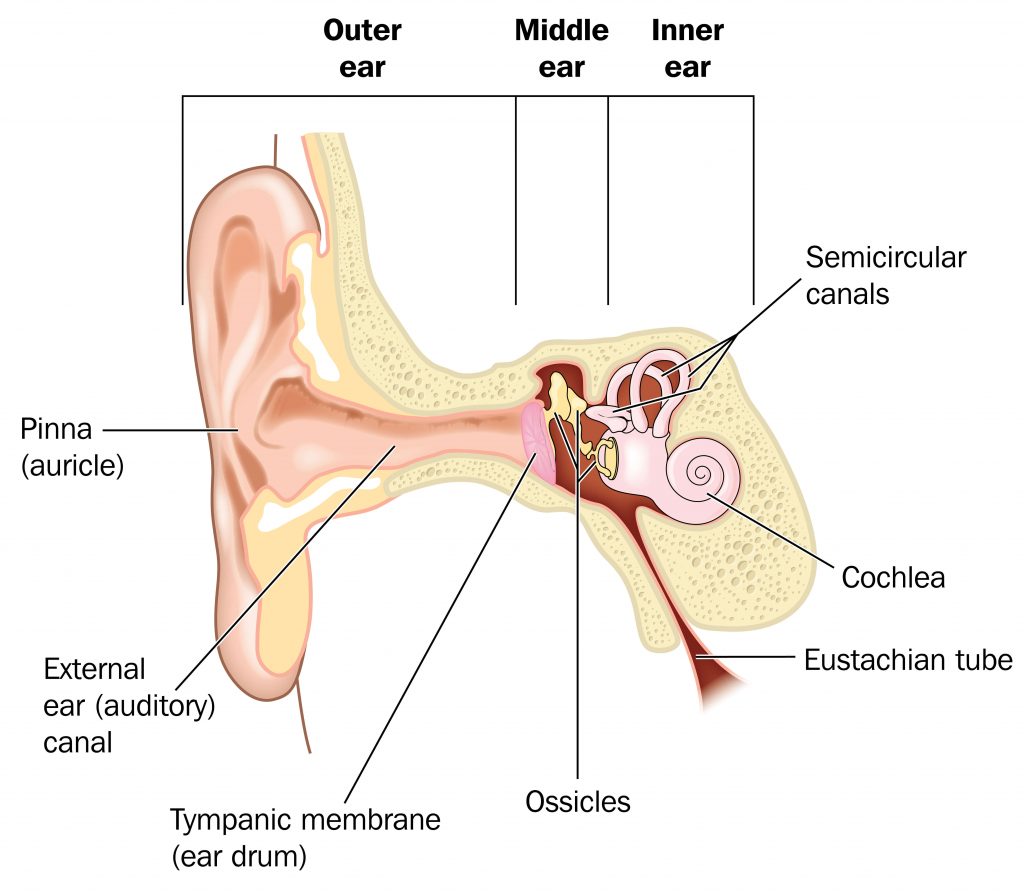How We Hear Sound
Our ears or pinna are organs that allow us to pick up sound around us which is then processed by our brains for us to make sense of. We have two of them which allows us to have stereo sound. This also allows us to tell where a sound is coming from-localisation.
We generally take our hearing and ears for granted and don't really pay attention to how much work our ears do for us day to day. These little organs are also responsible for our balance and most of you will be aware that they are linked to our nose and throat. So, if you've had a heavy cold or a chest infection, for example, you may also feel blocked up in your ears. Our ears also cleverly work with our eyes to help focus on a target around us. This helps us to remain balanced.
Changes to our to our hearing and balance can occur for several reasons but one of the most common, is ageing. This is also known as presbycusis.
Schedule your audiology clinic appointment now
We offer same day and late appointments, if you can't come to us, it may be possible for us to come to you.
Outer-ear, Middle-ear & Inner-ear diagram

The Outer Ear
The Middle Ear
Sound from the meatus travels through the air and bounces onto the ear drum or tympanic membrane, causing it to vibrate. Behind the ear drum are the ossicles, commonly known as the hammer anvil and stirrup that contract and relax in response to the vibration of the eardrum.
Glue ear is a common middle-ear condition, particularly in children, that can cause a conductive hearing loss. If glue ear is persistent it might require ENT intervention and the placement of grommets. Although not as common, it can also occur in adults. If grommets are unsuitable the resulting hearing loss can be managed with hearing aids.
The Inner Ear
In the inner ear, you have the cochlea, vestibule and semicircular canals. The cochlea has a special frequency organisation (tonotopic), which allows us to hear high frequency sounds differently from low-frequency sounds. The vestibule and semicircular canals allow us to remain balanced.
Age-related hearing loss or presbycusis is hearing loss due to deterioration of the hair cells in the cochlea.
Meet your audiologist
With almost 20 years experience in the NHS and private sectors, you are in good hands. Finding the right treatment can be confusing so I am here to make things clearer and easier for you to understand.
Hear Easy With Our Range of Audiology Treatments
Age Related Hearing loss
Learn more about ageing and hearing loss and how it affects us.
private hearing aids
Learn why private hearing aids might be a better choice for you.
